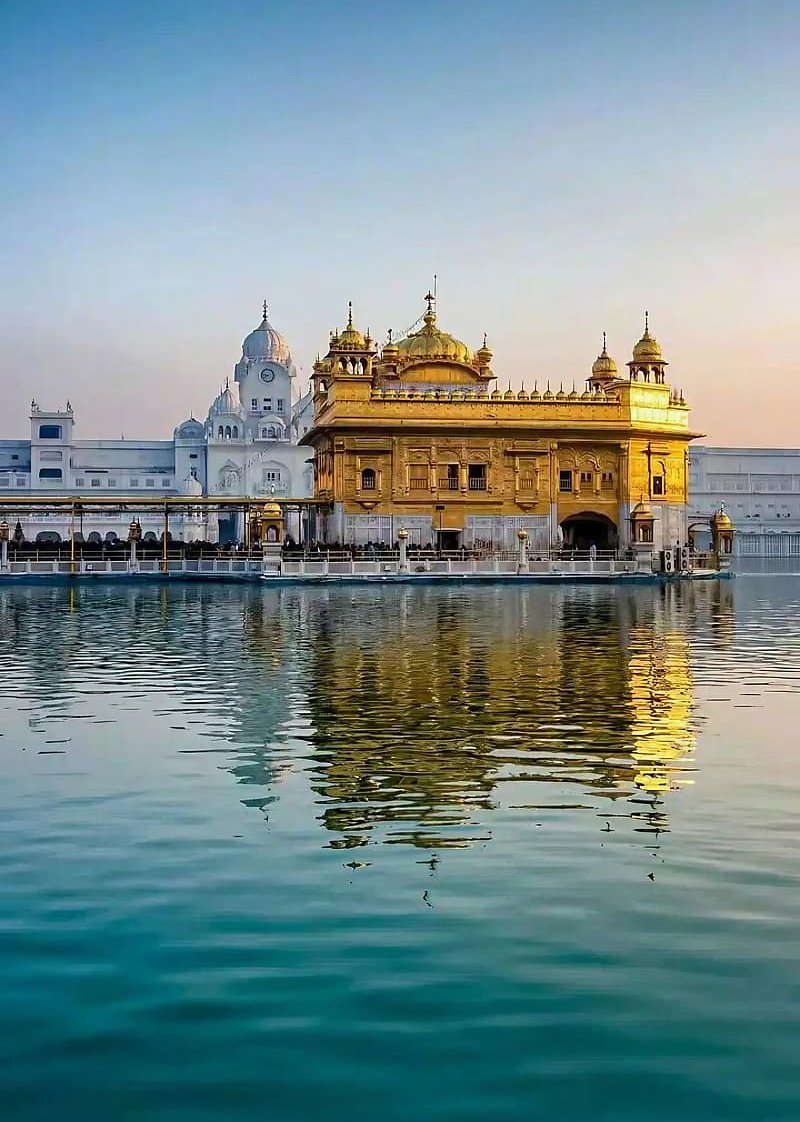Institute of Sikh Studies, Chandigarh (IOSS) was established in 1989 by some eminent Sikh scholars and Sikh stalwarts like, Sardar Daljit Singh, IAS, Dr. Kharak Singh, Prof Jagjit Singh, Justice Gurdev Singh, Maj Gen Gurbaksh Singh, Maj Gen Mohinder Singh, S Inderjit Singh Jaijee, Bibi Baljit Kaur, Bhai Ashok Singh Bagrian, Brig Hardit Singh and others registered under the Society XXI Act 1860 vide 846 of 1988-89. Originating from the Residence of S Daljit Singh, IAS (retd), it shifted to its present campus on the Gurdwara Sri Guru Singh Sabha, Kanthala, Indl Area Phase 2, Chandigarh on the Airport Road opposite The Tribune Office Roundabout in year 2000. After constructing its own campus, the major objective behind establishing this Sikh Institute of Sikh studies was to confront and rebut the countrywide vilification campaign against the Sikhs during the turbulent decade of 1980s as well as the calculated and intentional misinterpretation of some of the fundamental tenets of Sikhism by some of the Western and Northern American scholars under the stewardship of W.H. McLeod, a Christian missionary-turned-scholar of Sikh studies.
| S. No | Theme of Lecture | Speaker & Presiding officer & Organizing Date | Youtube Link |
|---|---|---|---|
| 1. | Bhai Kahn Singh Nabha – Life, Works and Contribution to Sikhism, Sikh Studies and Punjabi Language and Literature | Prof Kulwant Singh & Dr Jagmail Singh Bhathuan, May 20, 2022 | |
| 2. | Concept of Martyrdom in Sikhism with Reference to the Supreme Sacrifice of Sri Guru Arjan Dev ji and Sri Guru Tegh Bahadur Sahib | Dr Kulwinder Singh Bajwa (retd) Dr S.P. Singh, Former Vice-Chancellor, GNDU (not Attended) Sept 10, 2022 |
https://youtu.be/I2w_IWkOX3A |
| 3. | Supreme Sacrifice of the Two Younger Sahibzadas and its Importance in Sikh/ World History | S Bir Devinder Singh & S Gurmit Singh Bhatia Dec 17, 2022 |
|
| 4. | Gurbani Vyakhiyakari: Prampara ate Varatman | Dr Chamkaur Singh & Dr Gurmail Singh, February 18, 2023 |
|
| 5. | Punjab de Maujuda Halat: Sarvekhan ate Mulankan | S Jaspal Singh Sidhu & S Ramesh Inder Singh (Ex-chief Secretary) April 22, 2023 |
https://www.youtube.com/live/7qvm9uWTQls?feature=share |
| 6. | ਸਿੰਘ ਸਭਾ ਲਹਿਰ ਦੀ ਪਿਠਭੂਮੀ, ਪ੍ਰਕਿਿਰਆ, ਪ੍ਰਭਾਵ ਤੇ ਐਸ.ਜੀ.ਪੀ.ਸੀ. ਦਾ ਇਤਿਹਾਸ ਤੇ ਕਾਰਗੁਜ਼ਾਰੀ | S Baldeep Singh & Dr Khushal Singh July 1, 2023 |
https://www.youtube.com/watch?v=USijgeHENgw https://www.youtube.com/live/USijgeHENgw?feature=share |
| 7. | Uniform Civil Code (UCC) | Dr Kashmir Singh & Dr Swaraj Singh September 16, 2023 |
https://www.youtube.com/live/FORegDG6Aps?si=75PFOihQhlMOuSr7 |
| 8. | Core Concerns in Contemporary Sikh Studies | Dr Indu Banga & Dr Tejwant Singh Gill December 2, 2023 |
https://www.youtube.com/live/lnRFTyh2hbw?si=AsbNBLUEUFitA50_ |
| 9. | Sikh-Theology rooted in Eco-theology | Prof Kulwant Singh & Principal Prabhjot Kaur March 2, 2024 |
https://www.youtube.com/watch?v=5xJoKXeVvLI https://www.youtube.com/live/5xJoKXeVvLI?si=YOGwkdJUbERpvwIn |
| 10. | ਸੱਚ ਸੁਣਾਇਸੀ ਸੱਚ ਕੀ ਬੇਲਾ | Dr Swaraj Singh & Dr Swarajbir Singh May 25, 2024 |
https://www.youtube.com/live/Og9Ex60oF8E?si=sN9Ri-yOAPJ6HoJx |
Income Tax Exemption for Donors to Institute of Sikh Studies Institute of Sikh Studies has been granted provisional approval under section 80G of Income Tax Act 1961 with effect from November 26, 2021 to
Assessment year 2024-25 vide Unique Registration Number Henceforth, all donors making donations to AAAAI1864PF2021401 dated 26-11-2021.the Institute will be able to claim deduction for
the same from their incomes under section 80G of Income Tax Act 1961.
All persons, who wish to give donations to the IOSS, contribute subscription for the Abstracts of Sikh Studies, are requested to please note that the money can directly be deposited from anywhere in
Institute's following Saving Accounts:
| Bank | Account Number | Branch | NEFT IFSC Code |
|---|---|---|---|
| HDFC Bank | 13241000023350 | Sector 27, Chandigarh | HDFC0001324 |
| Axis Bank | 919010071482516 | Sector 19, Chandigarh | UTIB0003149 |

To achieve its various objectives, the IOSS has taken up the following activities in hand:
In 1990-91 seven International Sikh Conferences were organised in U.K., Canada, and U.S.A., at London, Toronto, Vancouver